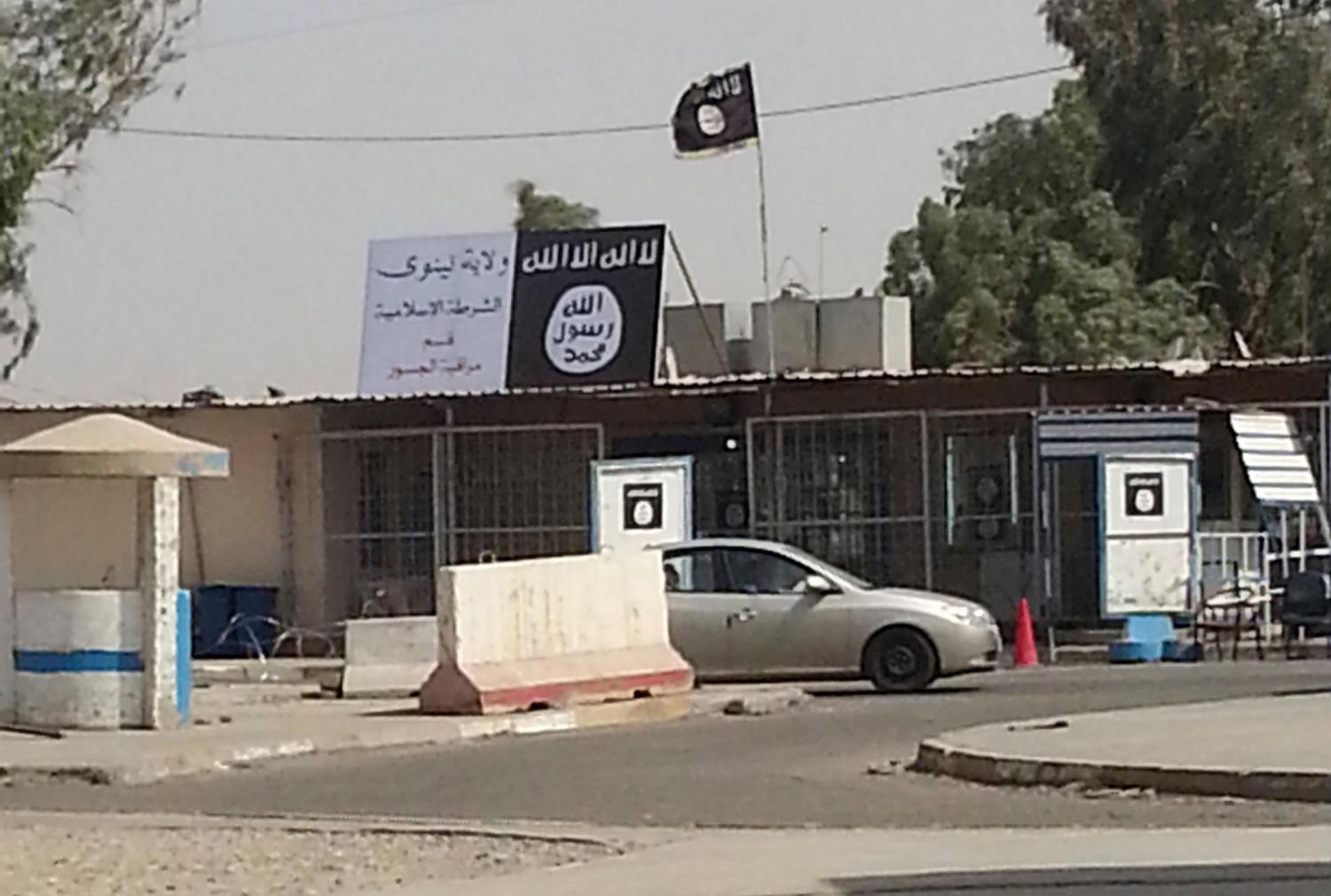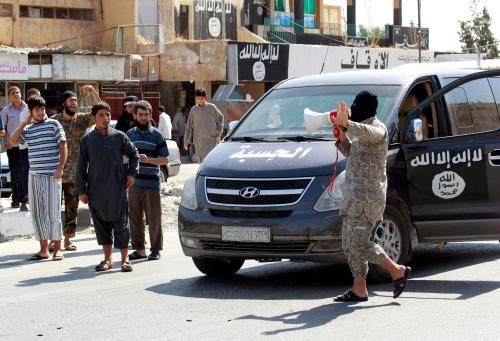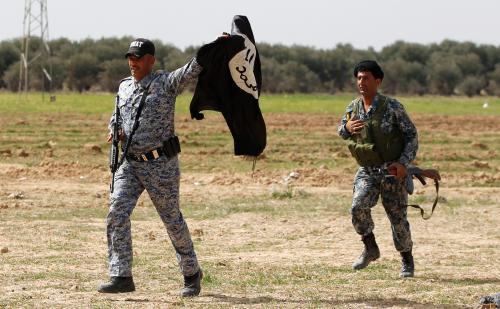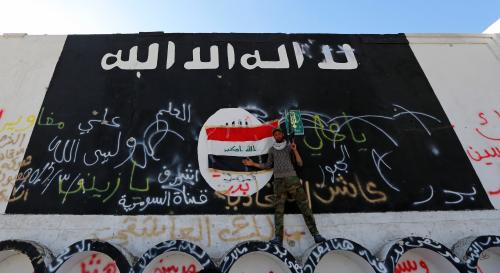Will McCants: Recently, the New York Times reported on a leaked memo written by Richard Stengel, the State Department’s under secretary for public diplomacy, who criticized America’s foreign partners in the effort to counter the Islamic State’s propaganda. It’s the latest chapter in the U.S. government’s decade-long saga to counter jihadist propaganda, which Greg Miller and Scott Higham documented so thoroughly in the Washington Post.
With the presidential election coming up and U.S. messaging strategy against the Islamic State uncertain, I figure it’s a good time to pause and take stock of where things stand. Over the next week or so, I’ll be asking some of the folks who’ve wrestled with the problem inside and outside government to share their thoughts on what can be improved and whether the United States should even bother trying to persuade a small minority jihadist recruits not to throw away their lives.
To kick things off, I offered a few thoughts of my own and asked the first director of the U.S. government’s Center for Strategic Counterterrorism Communications (CSCC), Amb. Richard LeBaron (@RBLeBaron), to share his thoughts. The CSCC is an interagency body housed in the public diplomacy section of the State Department. Richard is now retired, which made his post on the subject of countering ISIS messaging especially honest, and thus insightful and fun, to read.
Richard’s successor at the CSCC was Amb. Alberto Fernandez (@VPAFernandez), who retired recently and is similarly free to speak his mind. If you follow him on Twitter, you know he’s elevated post-government truth telling to an art form. To my knowledge, this is the first time he and Richard have compared notes about their trauma time directing the center. Alberto writes that Western governments would be well served by recognizing that the problem of ISIS messaging is fundamentally a political problem reflected in social media — and not the other way around.
Kamran Bokhari argued it is very difficult to separate the religion from the politics in ISIS’s narrative, posing significant challenges for the U.S. government to counter their propaganda.
Charlie Winter writes that states in the coalition against the ISIS are structurally impaired from competing with Islamic State propaganda, which strategically offers different narratives to diverse audiences.
Neil Aggarwal argued that combating Islamic State propaganda requires more than counter messaging and needs to address the problem of weak states.
Next, Clint Watts, Fox fellow of the Foreign Policy Research Institute, explains why the U.S.’s current whole-of-government approach creates implementation challenges to sustaining an effective online campaign against ISIS propaganda.
Clint Watts: Rather than retread ground better described by my fellow contributors in parts 1-5, I’ll focus on the challenges of implementation – specifically how the labyrinth of government counterterrorism prevents itself from moving forward against ISIS online – and offer my thoughts on what would need to change to sustain an effective online campaign against ISIS.
Overall, U.S. government counter messaging suffers from a Hearts-and-Minds hangover circa 2008. U.S. government mindsets around countering ISIS online have continued a whole-of-government approach where the Departments of Defense (DoD), State (DoS), a little of Justice (DoJ) and Homeland Security (DHS), and at times the intelligence agencies (CIA, DIA, NSA, etc.) all combine forces to slowly fail at countering ISIS’s message. Whole-of-government approaches can result in competing agencies lightly working to counter ISIS’s narrative while focusing on their primary functions, in what I call counterterrorism by PowerPoint bullets. For the bureaucrat, it will always be better to initiate an ISIS counter propaganda program rather than to complete one; better to wait and hand the end product off to a successor for fear of what one’s superiors or the media might find wrong with it during implementation.
This whole-of-government trap manifests in a host of implementation challenges for countering ISIS online that need to be rectified should the U.S. government believe the benefits of countering ISIS propaganda outweigh the costs:
- Resources, capability, and authority misalignment: Despite recent focus on the State Department’s CSCC, the bulk of counter messaging resources and capacity remain in the DoD. However, DoD practitioners vary wildly in skills and experience and have paucity in social media engagement. DoS has the most authority for engaging ISIS globally, but will likely continue to struggle in securing the needed resources for their CSCC, which lacks the capacity to match the scale of ISIS’s social media campaigns. Meanwhile, the intelligence community retains much of the greatest technical capabilities and knowledge for social media analysis and engagement, but under scrutiny from the Snowden disclosures and fearful of accidentally tripping up on an American supporter of ISIS in the online space, their efforts to counter narratives will be muted. Furthermore, the DHS and the FBI have jurisdiction over the U.S. domestic space but little to no authority or capacity to run counter narrative efforts against homegrown recruits. Additionally, both DoD and DoS will divide their efforts up, at different times, into geographic commands, bureaus, and countries, further complicating ownership and authority over engagement. Meanwhile, ISIS runs rampant, rightly seeing the social media landscape for what it is: one battle space they can (and do) easily dominate.
- Timeliness: U.S. counter narrative campaigns can take far too long to plan, develop, and execute to ever successfully derail ISIS. While the CSCC has reduced the time to implementation, in several cases I’ve worked on social media assessments of jihadi activity during a specified time period, and then been asked to brief military commands on that same one-time assessment for up to two more years. In two years, al-Qaida’s closed Internet forums were completely overtaken by the rise of social media, and jihadists in Iraq changed names three times. Social media interactions occur in seconds and minutes, while U.S. government responses usually take months and often years to acquire needed approvals. If we are ever to be effective, counter narrative efforts must speed up dramatically.
- Flexibility: The level of oversight placed on counter narrative programs is staggering. Combine that with concurrence from multiple agencies and a rapidly shifting ISIS and no effort will ever keep pace, much less be effective. A large number of engagement officers need to be free to assess, plan, and respond to ISIS messaging efforts in near real time. Counter narrative implementers should be given a clear objective, a commander’s intent, some basic restrictions, and then be allowed to run for a defined period. Then, after at least six months and preferably closer to a year, commanders can assess and recalibrate the program.
- Endurance: As seen in recent reporting, State Department officials are more incentivized by their leadership to not fail rather than to succeed. The CSCC likely remains the right entity to counter ISIS, but the organization is young, its campaigns are long to develop and execute, and public expectations for their success is far too high. For U.S. counter narrative efforts against ISIS to succeed, the CSCC or whoever executes the strategy will need to have sustained support from government leaders all the way to the White House. These leaders have to recognize effective counter narrative campaigns require a learning process where some messages hit and others miss, and that one messaging misfire does not equal strategic failure.
- Trust in delegation: Media scrutiny of ISIS counter narrative programs, which is often misguided, combined with bureaucratic infighting has created a micromanaged environment where no effort is likely to succeed. The White House, DoS, and DoD must begin trusting each other and their subordinates to counter ISIS in the best way they know possible with true unity in effort. My general sense is a collaborative, learning environment does not exist in this space and until that changes, no counter propaganda effort will make much of a dent against ISIS’s social media machine.
I’ve argued since 2009 that the best recruiter of a foreign fighter is a former foreign fighter, and thus the best counter narrative to ISIS is a defector from ISIS’s ranks. I recently put forth my proposal for using defectors as vehicles for counter messaging in social media (in two parts here and here). I believe this will be the most effective method for countering the ISIS narrative online, and the CSCC remains the appropriate place to execute it. I’m nearly certain my proposal will never be executed, or if it is, the content will arrive on Facebook and YouTube just as the lone remaining ISIS member joins the new hip extremist group rising from ISIS’s ashes.
The Brookings Institution is committed to quality, independence, and impact.
We are supported by a diverse array of funders. In line with our values and policies, each Brookings publication represents the sole views of its author(s).








Commentary
Experts weigh in (part 6): Can the United States counter ISIS propaganda?
July 13, 2015